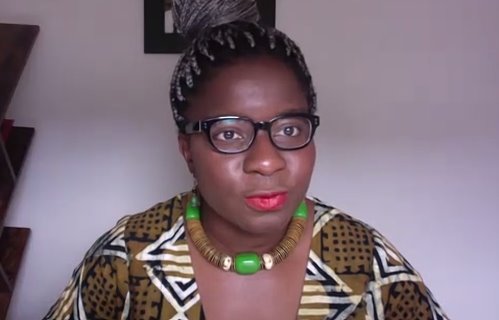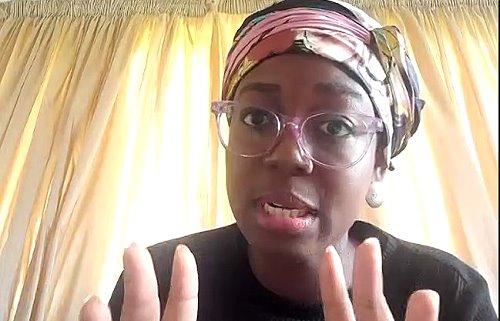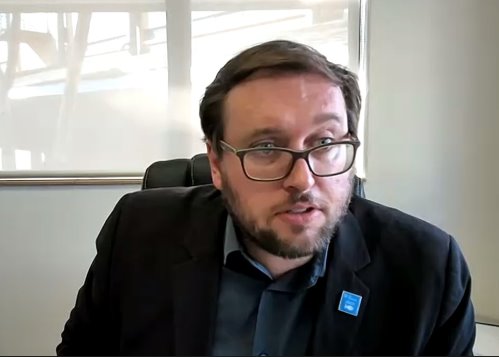 Africa remains the world’s youngest continent with a median age of 19.7 years.By 2050, one in three young people will live in Sub-Saharan Africa. Estimates suggest that 80-90 percent of African workers are engaged in the informal sector. Each year, 10-12 million African youth enter the labor market, but the African Development Bank estimates that only three million formal jobs are created annually. Meanwhile, nearly half of all African countries rank in the bottom quartile of Transparency International’s Corruption Perceptions Index and a new wave of predominantly young people risk their lives in search of better futures in Europe and elsewhere because they see none at home.
Africa remains the world’s youngest continent with a median age of 19.7 years.By 2050, one in three young people will live in Sub-Saharan Africa. Estimates suggest that 80-90 percent of African workers are engaged in the informal sector. Each year, 10-12 million African youth enter the labor market, but the African Development Bank estimates that only three million formal jobs are created annually. Meanwhile, nearly half of all African countries rank in the bottom quartile of Transparency International’s Corruption Perceptions Index and a new wave of predominantly young people risk their lives in search of better futures in Europe and elsewhere because they see none at home.
Against this backdrop, on Thursday, August 10, 2023 the Africa Center for Strategic Studies (ACSS), the Office of the African Union Youth Envoy, and the African Unions Youth4Peace Africa Program organized an academic online webinar to analyse the role of youth in promoting awareness about ocean health, protection, and its sustainability.
 The session was set up mostly as a dialogue with Assis Malaquias, Academic Dean of the African Center for Strategic Studies in Washington asking questions with three scholars in maritime security focused on Africa answering:
The session was set up mostly as a dialogue with Assis Malaquias, Academic Dean of the African Center for Strategic Studies in Washington asking questions with three scholars in maritime security focused on Africa answering:
Ifesinachi Okafor-Yarwood, Lecturer in Sustainable Development at the School of Geography and Sustainable Development of the University St Andrews in Scotland and 2023 Pew Fellow focused on Ghana. Her research seeks to explore the interaction between Illegal, unreported and unregulated fishing (IUUF) and other maritime threats in the Gulf of Guinea. She also analyses the possible (human security) implications of the prevalence of IUUF.
Stephanie Oserwa-Schandorf, Associate Director of the in Accra, Ghana. Her research interests
 Timothy Walker, Maritime Project Leader and a Senior Researcher at the Institute for Security Studies in Pretoria, South Africa. His work focuses on
Timothy Walker, Maritime Project Leader and a Senior Researcher at the Institute for Security Studies in Pretoria, South Africa. His work focuses on
The online event was concluded by an intervention of Joel Amegboh of the ACSS. He is an Assistant Professor for African Security Studies, responsible for overseeing the Africa Center’s academic programming on National Security Strategy Development and Youth, Peace, and Security and integrating these considerations into the Center’s research and outreach.
The first part of the conversation centred on the role of lacking education and the effects of unemployment of young people in Sub-Saharan Africa. All speakers acknowledged that access to education, including STEM, was a major contributing factor to unemployment and a lack of expertise in major areas of economic development, including the emphasis of the Blue Economy in most African coastal states.
 At the same time, Ife Okafor emphasised, that the African governments seemed to pay hardly any attention to maritime security, especially in relation to youth and their widespread lack of hope for better futures. While some senior military person was posted at the level of the African Union, that did not guarantee that the implications of widespread insecurity of fishers, coastal populations and youth was adequately addressed.
At the same time, Ife Okafor emphasised, that the African governments seemed to pay hardly any attention to maritime security, especially in relation to youth and their widespread lack of hope for better futures. While some senior military person was posted at the level of the African Union, that did not guarantee that the implications of widespread insecurity of fishers, coastal populations and youth was adequately addressed.
The debate was at its best when speakers outlined what they suggested as feasible priority action to remedy the problems outlined before.
Ife Okafor emphasised in particular two points: first, to stop the focus on securisation of youths . tackling corruption and prevention of letting desperate youths fall into the hands of criminals using them wrecklessly should rather be the priority, even if this was challenging. Second, to invest in creating opportunities not only at national level, but locally. Several city administrations were developing action plans for entrepreneurship, e.g. for adapting to sealevel rise, not only for making money fast. That could possibly build on greater awareness of environmental threats in the young generation.
Stephanie Schandorf added that even when young people were acquiring some more knowledge about the ocean, that was not automatically translating into greater care as some of that ‘knowledge’ was influenced by social media or films that made life as a pirate look adventurous and making them perhaps even more susceptible to the lures of criminals. Investing into true ocean literacy was a longer-term, but indispensible way to addressing lasting solutions by inculcating values of care and peace.
Ife Okafor also insisted that training for employability was not enough, especially if the promised jobs were then not becoming available. Tim Walker warned that some of the framing of such programmes was indeed not helpful and more emphasis should be placed on forms of dialogue to listen to all voices on how to cope with sealevel rise and erosion already squeezing the space of coastal populations not only in the Gulf of Guinea. Youths should be invited to share their experiences and help seek coping and adaptation strategies and preparedness. And it was essential to inculcate a sense of ‘we can make a difference’ added Stephanie Schandorf.
The recording of the full webinar is available here.
